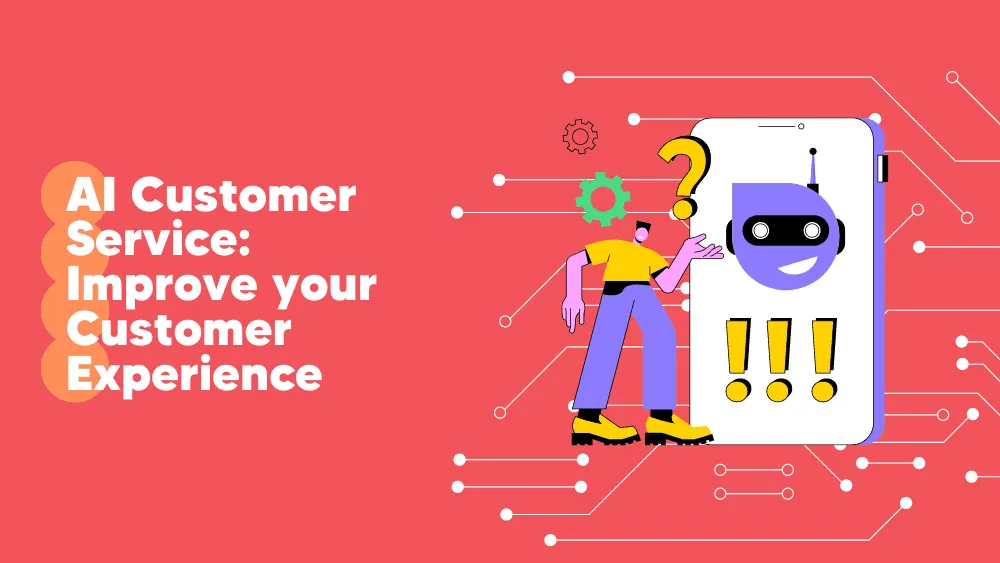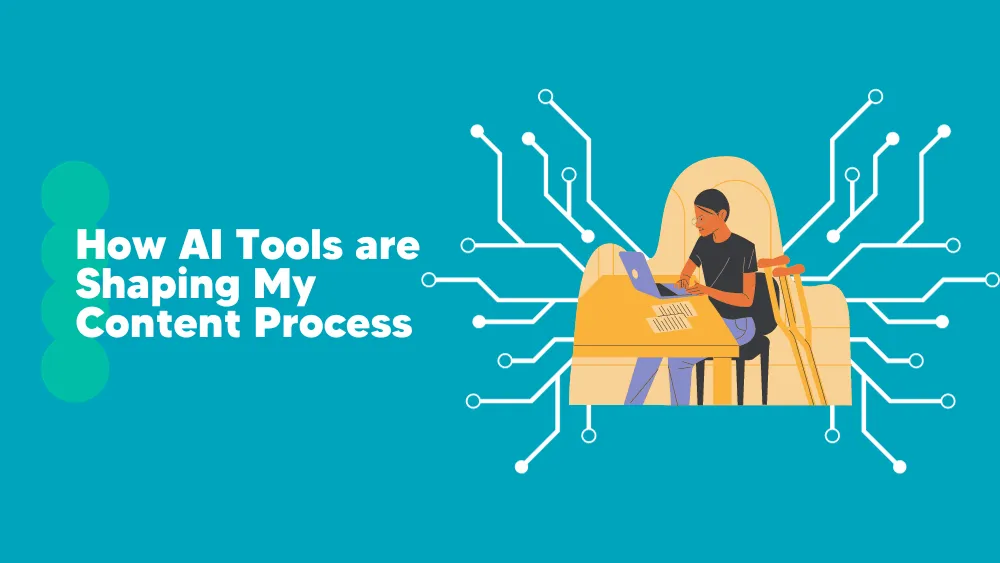Best Artificial Intelligence Software
What Is Artificial Intelligence Software?
Artificial intelligence (AI) has crept into business software. These applications have embedded machine and deep learning algorithms into their everyday functionality. The user saves time and energy by automating these operations. These functionalities simplify their job and help workers to work efficiently and productively.
‘Artificial Intelligence software is going to take over employment’ – this is what most people think nowadays, and this is just a widely accepted misconception that needs to be debunked. However, AI software platforms will help you get your job done more efficiently and better.
Artificial intelligence software gives developers the tools they need to create intelligent apps. You can add machine learning or speech recognition to an existing solution or design a new application using an AI platform. These developer tools, which support users in building machine and deep learning features for software, are frequently algorithms, libraries, frameworks, or developer kits.
Artificial Intelligent software is going to become a norm. AI usage is a feature that will not be regarded as groundbreaking but rather necessary soon. The software industry is attempting to meet that standard through AI developer tools.
Compare Artificial Intelligence Software
Bright Data
HappyLoop
8fig
Motive
Table of Contents
Why use Artificial Intelligence Software?
People use Artificial Intelligent tools to create innovative apps or add machine learning/deep learning to an existing one. With AI software, users can add general machine learning or specific in-depth learning features, like understanding language, recognizing images, and identifying speech. Although this is the main—and somewhat apparent—reason, many other causes exist. The below-mentioned are some of the most frequent ones:
-
Automation of tedious tasks
Businesses can use machine learning to automate laborious tasks that employees must perform daily. Instead of automating humans’ jobs, artificial intelligence (AI) software provides a tool to enhance their performance at work. Companies can give employees more time to focus on more crucial, human-necessary aspects of their jobs by using AI to handle other tasks.
-
Predictive functionality
It’s similar to automation as it eliminates human intervention by carrying out a task or providing a result that the solution thinks is correct. Automatically including expenses in a report is one low-effort approach to expense management.
How could a piece of software accomplish this? It uses Artificial Intelligence and machine learning technologies to comprehend that users are always charged the same amount for their reports. As a result, it predicts what will be in the report and automates it for the employee rather than requiring them to add it monthly. Applications can gain this kind of predictive capability by using AI software.
-
Smart decision-making
You might think that predictive solutions make intelligent decisions, but this part of AI helps people make smart choices instead of software doing it for them.
By offering analytical support and anticipated outcomes, machine learning can assist in removing uncertainty from essential business decisions. By eliminating human error from the decision-making process, this functionality also gives users the knowledge they need to back up their choices.
-
Customization
The use of conversational interfaces is beginning to spread into the B2B industry sector. This is mainly due to the success of consumer conversational AI platforms like Alexa, Siri, and Google Home.
AI software is the place to start for software companies looking to innovate and keep up with these advancements. Users can interact with an application in a streamlined, novel way by incorporating speech recognition into the software.
Trends in AI-based business and enterprise
Trends in AI technology
Cloud Computing, Big Data, AI, and the Internet of Things drive AI (IoT or AIoT). Thus, large-scale problems are now solvable. Edge Computing connects enterprise applications to IoT and edge device data sources, and edge AI, or Edge Intelligence, uses those technologies.
Machine learning and deep learning technologies enable edge AI to process big data from connected IoT devices. Moving workloads from the cloud to the network edge near data generation allows for highly efficient, connected, robust, and scalable system architectures. Software architectures (Cloud vs. Edge) significantly impact computer vision costs.
AI programs & new development tech
Platforms that integrate infrastructure, microservices, data, and research enable enterprise AI. Businesses can adopt AI technology while improving development team productivity by 10–100x using scalable platforms that offer automation, no-code/low-code environments, and hardware and software integration.
Cloud AI software offers browser-based tools and fully managed AI programs, replacing PC AI software. These solutions don’t need software clients; thus, users need not download sensitive training data or models to their local machines.
Business AI apps
Enterprise use cases are multiplying quickly, and most businesses have adopted a comprehensive AI strategy to keep up with emerging technologies.
With AI tools, resolving enterprise in-store retail analytics is now possible.
These issues involve predictive maintenance, fraud detection, intelligent sensing, supply chain monitoring, energy management, inspection automation, anti-money laundering, etc.
Common enterprise AI applications include predictive maintenance issues, asset monitoring for the oil and gas industry, manufacturing inventory optimization and automation, insurance fraud detection, animal monitoring, and many more.
Types of Artificial Intelligence Software
Artificial intelligence software has further subcategories, such as deep learning, chatbots, machine learning, and more. Additional subcategories of deep understanding, like natural language processing NLP, speech recognition, and computer vision, provide even more granularity (image recognition). Each of these subcategories provides users with unique functionality that could benefit businesses in the future.
-
AI Platforms
Many programmers want to build intelligent applications on top of an existing system. They can use artificial intelligence platforms, which are an excellent choice in this regard. These tools function similarly to a traditional application framework, offering a drag-and-drop interface alongside predefined algorithms and coding frameworks.
Unlike cloud PaaS products, AI platforms allow developers to incorporate machine learning and deep learning libraries and frameworks into their projects from the start.
AI platforms give applications a brighter edge in the end. They are hybrids of open-source and proprietary products, making it easy to make an intelligent app with little extra work. But people who need to learn more about development might need help using these platforms, even though they have drag-and-drop features for beginners.
-
Chatbots
One of the more sophisticated forms of AI software, chatbots serve two particular functions in the business world: automation and customer experience. These products use natural language processing (NLP) to have voice and text conversations with customers. The first line of defense for call center or live chat customer service representatives is frequently a chatbot.
Businesses can better direct clients or prospects by using a chatbot to assess the importance of a request or the reason for the interaction. These tools can decipher the overarching themes of requests and guarantee that the right person will reply to the question.
As with the new Facebook chatbots feature, chatbots can also be used as virtual assistants or customer support tools. Chatbots can learn and improve their vocabulary and general intelligence the more they converse with users and interact with them. The software’s machine learning and deep learning capabilities make all these things possible.
-
Deep learning Software
Deep learning algorithms vary from machine learning algorithms. The former uses artificial neural networks rather than human training to make predictions and decisions.
Extensive algorithms using artificial neural networks can make decisions in the same way that the human brain does. However, replicating the number of neural connections in the human brain is impossible; decisions are made on a smaller scale.
Deep learning is subdivided into natural language processing (NLP), image recognition (computer vision), and voice recognition. Examples of image recognition algorithms at work include Facebook’s ability to identify friends’ faces in photos and tag them and Google’s image search.
Natural language processing (NLP) can take in human language in its raw form, allowing a machine to comprehend basic spoken commands and user speech.
Several popular AI apps, such as Apple’s Siri and Microsoft’s Cortana for Windows, use NLP excessively in their processing. Each of these classes uses ANNs to improve learning by utilizing the networks’ deep layers of neural connections.
-
Machine Learning Software
Algorithms for machine learning include a wide range of libraries and frameworks. If these are correctly used, they can accomplish various machine-learning tasks. When these primarily open-source algorithms are built into the software, applications can make decisions and predictions based on data alone.
These algorithms often use supervised or reinforcement learning to learn from the given data sets. These kinds of machine learning do need some training from people.
Several machine learning algorithms exist, like learning by association, Bayesian networks, and decision trees. Connecting machine learning algorithms to data sources to make intelligent apps takes a lot of development skills and technical knowledge.
Who can use Artificial Intelligence Software?
Although many employees are likely to interact with AI apps, software engineers are the primary users of AI software because they use the tools to create intelligent applications. Artificial Intelligent tools require advanced machine learning and software development knowledge to be utilized effectively. The demand for machine learning developers exceeds the number of qualified candidates by a wide margin.
Numerous enormous organizations pay high salaries to those who can create machine learning algorithms or have the expertise to train deep learning models. Despite the demand and lucrative salaries, there is a general need for more individuals who can utilize AI software.
Similarly, there need to be more data scientists, a position that may also utilize AI software. Instead of developing intelligent applications, data scientists use machine learning models to extract actionable insights from data.
Most of the time, these employees utilize AI software features such as predictive analytics or natural language processing to extract valuable business insights from company data. As the value of data scientists rises due to the increasing amount of data consumed by businesses, many organizations will also pay them a high salary.
Key features of an Artificial Intelligence Software
AI software can be used in many systems to automate tedious, repetitive tasks, predict what people will do next, help people make decisions by giving them analytical proof, and recognize patterns in each person to offer personalization. Here are some of the widespread features that AI software possesses:
-
Streamlining Data Ingestion
AI platforms handle enormous amounts of data from numerous sources simultaneously. Data ingestion involves taking unstructured data from various sources and transforming it for machine learning processes. If done manually, the process takes a lot of time. This procedure is automated by AI software, freeing up resources and ensuring that ML models are fed with the most recent and relevant data.
-
Adaptive-Reactive
The capacity of AI software to learn from its surroundings through machine learning is a primary feature. It analyzes its performance and attempts to determine how to improve to produce better results. AI software responds to shifting inputs and circumstances in this way. It keeps track of its inputs, and when specific circumstances arise, it searches for the most appropriate processes, laws, or calculations before concluding.
-
Forward-Looking
In addition to having adaptive-reactive capabilities, AI software considers various scenarios and looks for the most efficient path to its objective. It calculates the best strategy while projecting the future over several steps.
-
Parallel and Multi-Tenant
AI software can accommodate multiple users or applications at the same time, using advanced technologies such as distributed systems and parallel approaches to process data quickly, adjust to changing conditions, and choose the best course of action from various available options.
Price Guide for an Artificial Intelligence Software
There are different models and price ranges for artificial intelligence software.
Open-source artificial intelligence software is very popular in many business fields because it offers many things. Enterprises use free artificial intelligent tools like IBM’s Watson and Apache Mahout as standard solutions.
Some AI solution software uses a pricing model called “freemium,” which offers a starting pack for single users or small groups of users. The following versions, which have more features, cost between $21 and $55 monthly. Most AI software companies, if not all, prefer to price their software based on the client’s business needs, and this helps them monitor how much extra it costs to process and store data in the cloud.
Potential issues with Artificial Intelligence Software
Many people who might use AI software think it can do everything out of the box, but this is only sometimes the case. AI software requires data to learn what you want it to know.
Users will have to train machine learning algorithms using techniques such as reinforcement and supervised and unsupervised learning to create a truly intelligent app. (A computer vision model cannot tell if an image contains a cat or a dog if it does not know what a cat and a dog look like.)
Additionally, more experts who can create these algorithms and train others to use them are required. AI software can’t just be turned on by any user, making all their problems disappear.
Instead, you need to know many things about how to make software and how machines learn. But as the need for these professionals grows, so will the number of qualified candidates and the capabilities of the apps they build.
























